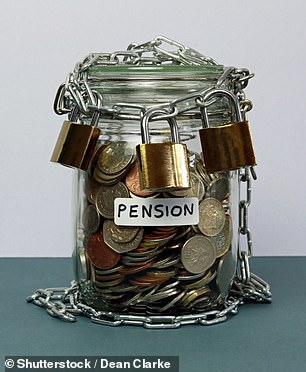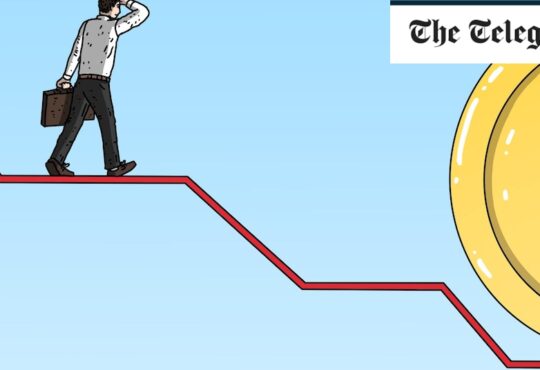
Goodbye to triple lock – I doubt it’ll be back to stay, says RACHEL RICKARD STRAUS: National Insurance fund could be exhausted in a decade

Under lock and key: If a private pension was run like the state pension, the managers would surely be arrested
It’s an open secret that the state pension operates like a giant Ponzi scheme. When workers pay National Insurance contributions, they are not ring-fenced to fund their own state pension. There is no nice pot of money accruing somewhere for me, labelled ‘Rachel’s retirement’. Instead the contributions of workers today are used to pay the state pensions of current retirees.
Of course, there is no theft or deception involved, as in actual Ponzi schemes. But if a private pension was run like the state pension – with funds only able to pay a fraction of its liabilities – the managers would surely be arrested.
We have an unspoken intergenerational agreement. Workers pay out for current pensioners in the expectation that when they retire they will receive the same treatment from future workers.
This works well while there is at least as much going into the pot as there is coming out. But a report by the Government Actuary last week suggested that the days of balancing the books were numbered.
The National Insurance fund is in surplus, but is likely to be in deficit by next year. In fact, another report by these same number-crunchers last year predicted the fund would be exhausted in a decade.
The pot is emptying for two main reasons. First, the population is ageing so fewer people are paying in and more are claiming. While in 2020 there were 27 retired people for every 100 workers, by 2085 there are forecast to be 43.
Second, the state pension is getting more generous – and therefore expensive – every year thanks to the triple lock. This guarantees it rises every year by the rate of earnings growth, inflation or 2.5 per cent – whichever is highest. This year’s increase of 10.1 per cent – set to come in this April – will be the largest rise since 1991.
So what can be done to ensure the state pension is available to future generations? There are a number of options – none especially palatable.
Workers could be asked to pay more National Insurance contributions. But with millions already struggling to make ends meet, higher taxation could be a very tall order.
The Government could top up the National Insurance pot with money from general taxation. It has happened in the past, and the Treasury must pay out if the fund falls below a sixth of its annual expenditure. But more money spent on pensions could mean less on schools, hospitals, roads or defence.
Alternatives involve giving pensioners less, rather than asking workers to pay more. They could include reducing or means-testing the state pension or raising the age at which we become eligible for it.
None of those options will go down well – as a glance across the Channel confirms. On Thursday, over a million people joined protests all over France against plans to push the age of retirement from 62 to 64.
I suspect this dilemma will play out in a number of ways in coming decades. I think it’s inevitable that in time a government with a big majority will find an excuse to break the triple lock. Once broken, I doubt it’s coming back.
Second, I suspect changes will be made to pension promises way off in the future. People in their 20s and 30s are less likely than people who are already close to retirement to take to the streets to protest against changes to their pensions when these changes won’t affect them for decades.
On page 65 of Wealth & Personal Finance, reporter Sarah Davidson sets out what you can do to get the retirement you want. Among her invaluable suggestions, she proposes that younger workers make sure they are not overly dependent on the state pension in retirement. It may not exist in its current form forever.
The forecasts suggest the state pension pot will run dry a decade before my retirement. I can’t help but feel twitchy.
Good news for shareholders
Wealth platform Hargreaves Lansdown said on Friday it was making it easier for customers to exercise their rights as shareholders.
They will be able to attend meetings of companies in which they hold shares with greater ease. Voting will also be simpler.
About time. We’ve called for investment platforms to up their game for years. I hope the laggards now step up, too.
Advertisement






